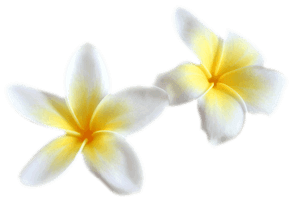- Home
- /
- Uncategorized
- /
- The mental health inquiry – a call to action for Pasifika

The mental health inquiry – a call to action for Pasifika
“Unless someone like you cares a whole awful lot, nothing is going to get better, it’s not.”
The Lorax, by Dr Seuss.
There’s a lot of banter out there at the moment about the governments’ new mental health inquiry, and the impact it will have on improving mental health in the future. The fact is, the success of the inquiry for Pasifika people will actually be dependent on the success of Pasifika people standing up and speaking out.
Sometimes our traditional Pasifika cultural values instilled in us to demonstrate respect and deference within sophisticated hierarchies, can be counter-intuitive to ‘standing up and speaking out’. It may feel unsafe to challenge (especially for our young people), or step outside of our cultural comfort zones – even if information is deemed anonymous. This is where Le Va can support. We can help facilitate Pasifika collective voices – bridging that ‘liability of deference’ divide, and create a safe space to have your say.
We welcome the opportunities that the inquiry brings for our communities. Le Va team members have already received numerous emails, phone calls and personal conversations from Pasifika people in the mental health and addiction community, looking for a place to reflect on the inquiry, and voice their views in a safe way.
Why is the inquiry important for Pasifika communities?
Mental health issues affect us all. Whether it’s mental illness, distress or maintaining what we’ve got, we need to be equipped to look after our mental wellbeing. Unfortunately, Pasifika people have higher rates of mental illness, substance abuse, and suicide attempts with more severe and complex needs compared to the general New Zealand population. Compounding this, we have lower rates of access to getting help, and when we do access services, it’s often late in the piece, at the crisis end of the continuum. When we do receive services, there are inequitable mental health outcomes – the research shows decades of disparities. We are not completely sure of the reasons for poor outcomes, but we are sure that if we take into account the wider social determinants of mental health (such as poverty, education, violence, trauma), if we include culturally-specific issues (such as cultural understanding of mental wellbeing, stigma, a whanau-focus, and spirituality), and if we have a culturally competent workforce, those disparities in outcomes will decrease.
Almost every Pacific adult in Aotearoa New Zealand has probably been impacted in some way, with connections to friends, family, community members, or personal experience of mental distress, mental illness or suicide, at some point in our lives. Everybody has a story and now it’s time to tell it. Our collective stories will help paint a picture of how services can better meet the needs of Pasifika families and communities, and how we can enhance the mental wellbeing of Pasifika communities. If we act now, and contribute to relevant change, not only will our children benefit, we’ll see a ripple effect for future generations.
The official stuff
Following public feedback and investigations throughout the year, the Mental Health Inquiry will provide a report to government due in October. The report will include how New Zealand is preventing and responding to people with mental health and addiction problems, and will recommend how systems and services can be improved. The inquiry is run by the Department of Internal Affairs, and is independent from the Ministry of Health.
The catalyst for the inquiry has been the development of widespread concern about the quality of our mental health services – with the successful facilitation of the Peoples Mental Health Report (2017), highlighting a range of problems.
Key drivers of the inquiry appear to be inequitable mental health outcomes, under-funding of services, and unacceptably high suicide rates.
The inquiry team consists of expert mental health, addiction, suicide, and cultural knowledge holders. We are pleased to see two people on the panel held with high esteem within our Pasifika mental health, suicide prevention, academic and youth communities: Josiah Tuamali’i and Dr Jemaima Tiatia-Seath. You can find out more about the panel and the inquiry by accessing the DIA webpage here.
How to get involved.
Now, more than ever, it’s important to take action. At the moment this action for you could be anything from ensuring you are updated, to connecting with us in person, to leading your own submission.
The Inquiry panel is yet to release their plans on how they will conduct the inquiry and engage with us, so we can keep you informed, and offer to facilitate community mobilisation when we know more.
In the meantime, here’s a few options:
- Sign up to our monthly newsletter to keep in the loop about the inquiry in our monthly blog
- Follow us on Facebook, Twitter and Instagram to comment on upcoming mental health inquiry posts (or ask us to post your own and we’ll share)
- Connect with us personally and email your interest to become involved in future Pasifika fono focussed on the inquiry – please email apollo.taito@leva.co.nz
- Provide your thought leadership on mental health and addiction and email us for support and sharing your information (or not sharing)
Thank you for considering this call to action. We’re excited and honoured to play a role in facilitating Pasifika perspectives to improve and enhance our mental health and addiction system so that its accessible and of high quality for all New Zealanders – igniting communities, creating change.
Malo ‘aupito.






